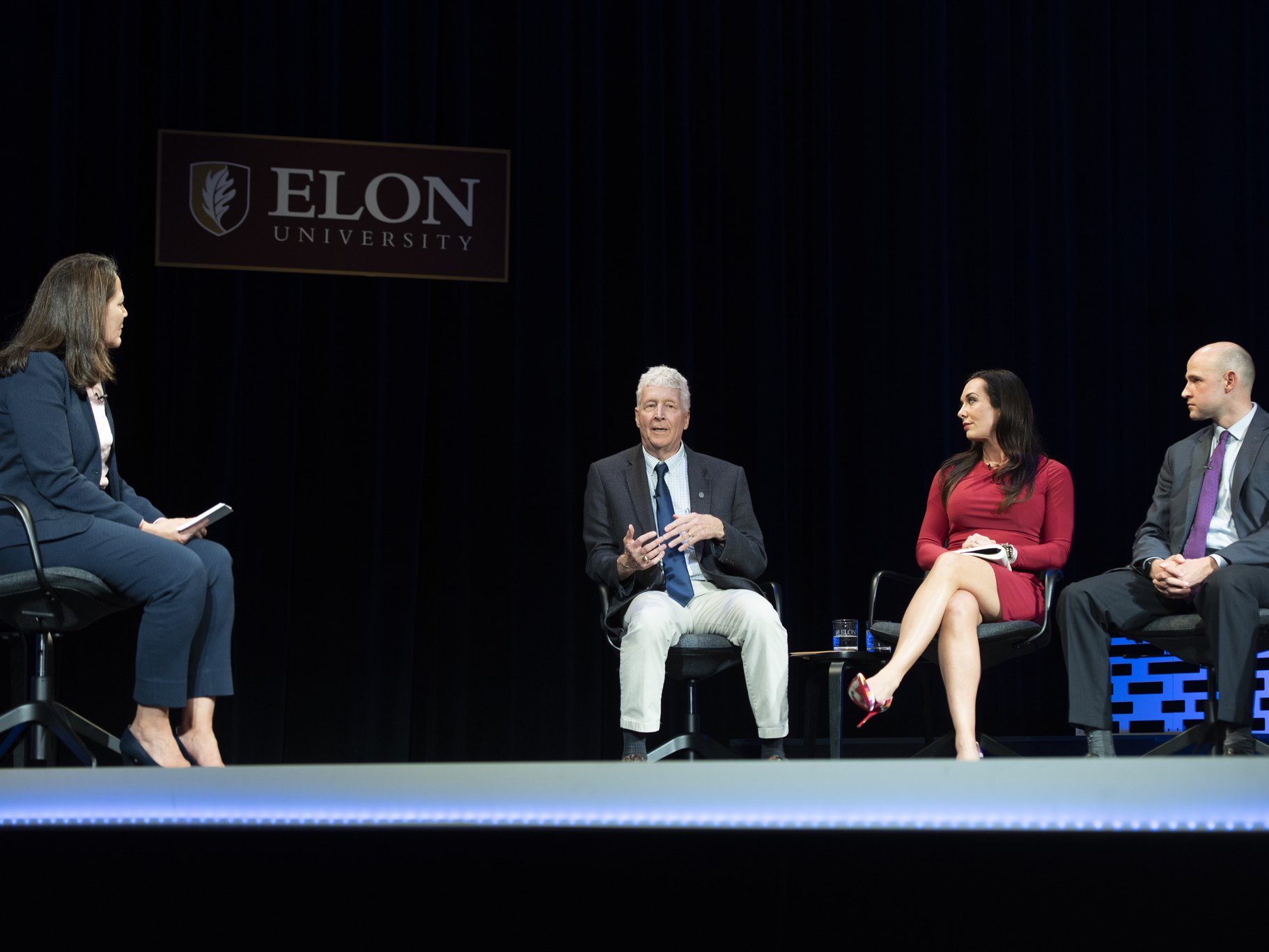A March 10 panel discussion featuring journalists and political science experts moderated by President Connie Ledoux Book explored a variety of topics about this year's presidential race and how North Carolina fits into the national political landscape.
PHOTO GALLERY: NORTH CAROLINA AND THE 2020 ELECTIONS
A panel of journalists and political science experts zeroed in on the emerging themes of the 2020 elections on March 10 during a discussion moderated by President Connie Ledoux Book. During the hour-long program, panelists delved into the critical importance of North Carolina this year as it hosts the Republican National Convention and will again be a critical swing state in the presidential election.
“North Carolina has grown to be in that category of ‘purple-y’ states,” said Meg Kinnard, a South Carolina-based national political reporter covering the presidential race for the Associated Press. “It’s not just about Ohio, and Florida and Michigan.”
Kinnard was joined on the panel by Jason Husser, associate professor of political science and director of the Elon University Poll, reporter Jim Morrill with The Charlotte Observer and Michael Bitzer, Leonard Chair of Political Science at Catawba College. The discussion was offered in partnership with The Charlotte Observer, The Raleigh News & Observer and The Durham Herald-Sun and was part of the annual Elon University Speaker Series.

The group gathered after the rapid narrowing of the field of 2020 presidential contenders following primary elections in South Carolina and more than a dozen states on Super Tuesday, with a crowded Democratic field essentially reduced to former Vice President Joe Biden and Sen. Bernie Sanders of Vermont.
Husser noted that young voters that the Sanders campaign had been counting on motivating to turn out had not shown up on Super Tuesday like many had thought they would.
“Younger voters are a very diverse group, and their choices for president are also diverse,” Husser told the crowd gathered in McCrary Theatre for the event, which was recorded UNC-TV for broadcast. “The big question is what is turnout going to be for these younger voters. College students and other young folks have the ability to change the outcome of the election, if they turn out to vote.”
Turning the focus to North Carolina, Bitzer noted that North Carolina is part of the region that with other states like Virginia, Georgia and Florida have seen high population growth, which has impacted their political dynamics. “I think for both parties, they need to look at the South and say, ‘where can we maximize our focus?’,” Bitzer said.
Morrill echoed the observation, noting that Democrats are now faring well in Virginia and more changes are perhaps coming in Georgia. “It wasn’t that long ago that the entire South was red during presidential elections,” Morrill noted. “We’re looking at the South in a different way.”

Looking ahead at how the presidential campaign will develop this year, President Book cited the results of a recent Elon University Poll that showed a high level of concern among many voters related to the role misinformation may play. The volume of information itself may also pose a challenge, Kinnard noted.
“In some ways, we don’t even need to look toward an outside source of interference, but need to look at the amount of information candidates are asking voters to ingest,” Kinnard told the crowd. “It’s not just an outside entity trying to infiltrate.”
The discussion turned to the potential impact of the novel coronavirus 2019, known as COVID-19, that has spread rapidly around the world and is now leading to numerous societal restrictions. Serena Shah, a political science major, was one of three Elon students to pose questions to the panel during the discussion, and asked panelists to weigh in on how large an impact they are expecting. Morrill noted that the political conventions scheduled for July and August could be canceled, while Bitzer said that public restrictions related to COVID-19 could drive up absentee and early voting.
Husser said the economic impact from COVID-19 could impact what voters are thinking as they head to the polls, with the stock market dropping, businesses closing temporarily and people finding themselves without work. “We’ve seen parallels in the past with the impact that hurricanes have had,” Husser said.



